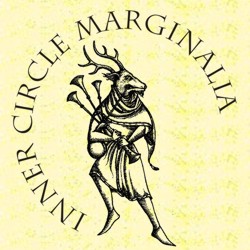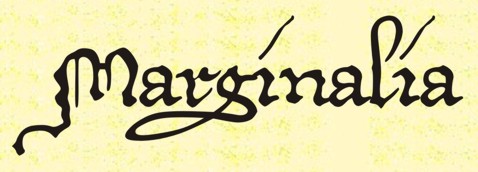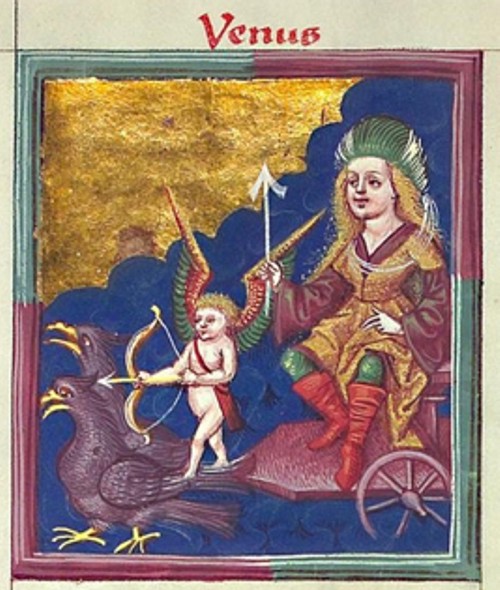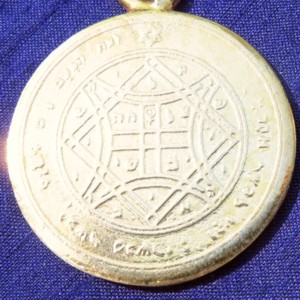
|

#26 - May 2018 - Schools of Astrology & Venus Pentacles
| HOME |

|
| Renaissance Astrology Website |

|
| Inner Circle Main Page |
| Currently Available Talismans |
| Daily Planetary Practice |
| Marginalia Main Page |
|
|

|
Schools of Astrology
Venus Pentacles
Schools of Astrology

|
That separate schools even exist is something of a revelation for the public at large, for astrological dilettantes and dabblers and even professional astrologers. For them there is merely ASTROLOGY. I analogizes this to cooking. "What sort of cooking do you do?" "Oh, just cooking you know" "What do you make?" "Oh, tacos, enchiladas, tamales" "Oh, you mean Tex-Mex cooking!" We can do a similar process with astrologers. If you ask them what type of astrology they practice and they say "astrology" then they are modern astrologers.
We can partly blame proselytization of Science and Medicine for this. The allopathic school, currently in vogue, has managed to discredit all other schools of medicine, such that they either have adapted almost entirely to allopathy, e.g. osteopaths, or they are no longer considered legitimate medicine, e.g. homeopathy or traditional Western Galenic medicine. Similar with Science as with many forms of Christianity, there is one truth, one objective reality and everything else is false. Of course Science constantly keeps changing its mind about what the truth is, but its votaries never lose faith that eventually the fixed truth of ultimate reality will be scientifically revealed.
This contributes to a view of astrology as simply a trash heap of individual methodologies, all of which work independently and which are obviously and universally, for all users, objectively better or worse. This, and ego, leads to arguments about which is the "best" house system for all astrologers, in all systems, for all time.
So let's talk about the currently existent astrological achools. They are (1) modern Western astrology; (2) traditional Western astrology, (3) Vedic astrology, (4) Chinese & Tibetan astrology and (5) Hellenistic astrology.
Modern Western Astrology
This is by far the predominant school of astrology in the West. While it has roots in Hellenistic and Western traditional astrology, modern astrology is sui generis and arose in the late 19th century. It operates as an overlay on the modern atheistic, materialist worldview, which leads to its first problem which is an inability to explain how astrology works, i.e. astrological causality. Modern astrologers, like most New Agers, simply ignore the question of causality. If they grasp the nettle, the explanations are either some sort of energetic or material causality, eg rays, beams, gravity, string theory, for which there is zero evidence or rely on synchronicity. Since Jung posited synchronicity as "acausal" connecting principle, i.e. a cause without an explanation, there is no acceptable explanation of how astrology works in modern astrology.
Modern astrology for the most part rejects the existence of Fate. Nothing is fixed, everything is changeable. The chart shows only tendencies. This is very much in line with modern thought, which accepts limits only insofar as they are physical or material, e.g. I as 55 year old 5'6" non athlete will not be playing in the NBA, no matter how many affirmations I do. Modern astrology is overwhelming positive. There are no negative aspects and planets are not debilitated. The only negative factors have been imported from traditional astrology, like the void of course Moon or retrograde Mercury. These factors, however, are APOCALYPTICALLY bad, in contrast to the 99% of pure modern astrology.
The next characteristic of modern astrology is its extreme flexibility in terms of technique and method. Any technique or method from any source can be used at any time by any astrologer. However, the predominant focus is looking at natal charts and using them to forecast the native's psychology. Modern astrology really shines at this, but is not a good tool for predictive astrology otherwise, due to the lack of negative astrological factors and simplified technique.
Traditional Western Astrology
Traditional astrology is shorthand for astrology as practiced in Europe in the Middle Ages, Renaissance and Early Modern periods. Traditional astrology is based on 8th-10th century Arabic astrology which represented a new and brilliant synthesis of Hellenistic, Vedic and Persian astrology and was brought to the West as part of the influx of the high culture of the Islamic Middle East in the 11th to 13th centuries.
Traditional astrology is part of traditional Western pre-"Enlightenment" culture that was infused with the spiritual. The causality was predominately spiritual, whether Al-Kindi, who posited spiritual rays or Plotinus' unity in the One. Even the more materialistc views epitomized by Ptolemy did not attempt to explain all celestial effects materially, as Ptolemy's elemental casaulity did not explain the admitted existence of occult virtues. The focus in traditional astrology was on Fate, and astrology was the exemplification of the effects of Fate, Destiny and Providence, though Free Will was not denied. Paradoxically both Fate and Free Will operated simultaneously as the One transcended and contained both. The focus of traditional astrology was on prediction and it contains a myriad of complex techniques, from very negative to neutral to very positive in an attempt to create a methodology that could accurately model and predict reality.
Vedic, Chinese & Tibetan Astrology
These are all traditional Eastern schools of astrology. They share traditional Western astrology's integration into traditional culture and philosophy and thus accept, if not totally rely on spiritual causality. They are also focused on prediction with complex techniques and an integrated methodology.
Hellenistic Astrology
This is really a potential school. Hellenistic astrology is the astrology practiced by the Greeks and Romans, including Byzantine astrology. It is a traditional astrology, again accepting, if not totally relying on spiritual casuality with complex techniques focused on prediction. Chris Brennan's "Hellenistic Astrology: the Study of Fate and Fortune" is a milestone and hopefully will induce some astrologers to actually practice 100% as Hellenistic astrologers.
So a number of comments. The real purpose explaining these differences is mostly taxonomic, as a way to understand the differences. Despite some bias on my part, I by no means am saying that "anything but traditional Western astrology is bad" Each school has different characteristic, each school has things it does well and things it is not so good at. These are merely labels, to assist our understanding. The problem comes in when we decide that we like a label or at least like the positive connotations of a label, without there needing to be any correspondence between the label and what we refer to. "Traditional astrology" is good, so now I am a traditional astrologer, despite doing natal Jungian psychological analysis. But what is key is the recognition that these schools are in fact different systems that need to be internally coherent, different languages if you will. The meaning is derived from the interrelationships of parts within an ordered system, not from the individual parts themselves.
This is problematic for modern astrologers because modern astrology uses a sort of rag and bone man approach to other schools, who they see as merely large trash heaps of individual techniques that can be mashed together regardless of the source. Like a language merely learning to say, "je parle francais" does not make me a French speaker or a Frenchman. And using French verbs, German nouns and English grammar would be incoherent, which is why the standard modern bricolage of astrological techniques, borrowed from many sources, is ineffective.
We need to have a balanced view of the schools of astrology and their strengths and weaknesses. While I am a traditional astrologer, I firmly believe that natal psychological astrology works and is extremely useful. I'm good at it myself! But for prediction in general, traditional astrology is supreme.
Venus Pentacles

Fourth Venus Pentacle |
We have had Venus pentacles for a long time, so I am happy to be back in stock with them! These are particularly nice because they were made with Venus dignified by sign (+5) triplicity (+3) and term (+2) total +10 which I think is the highest possible essential dignity for Venus. They were also made at Venus hour and Venus day. Think Venus and we automatically think love, for love check out the 3rd Venus pentacle and the 5th Venus pentacle. Check out all of our Venus Pentacles.
Check out all of our currently available talismans, currently available pentacles, currently available magic mirrors and currently available paper talismans,

HOME
Please Contact me with any Questions & Comments
Specializing in Horary Astrology, Electional Astrology Astrological Magic and Astrological Talismans.
Copyright 2018, Christopher Warnock, All Rights Reserved.